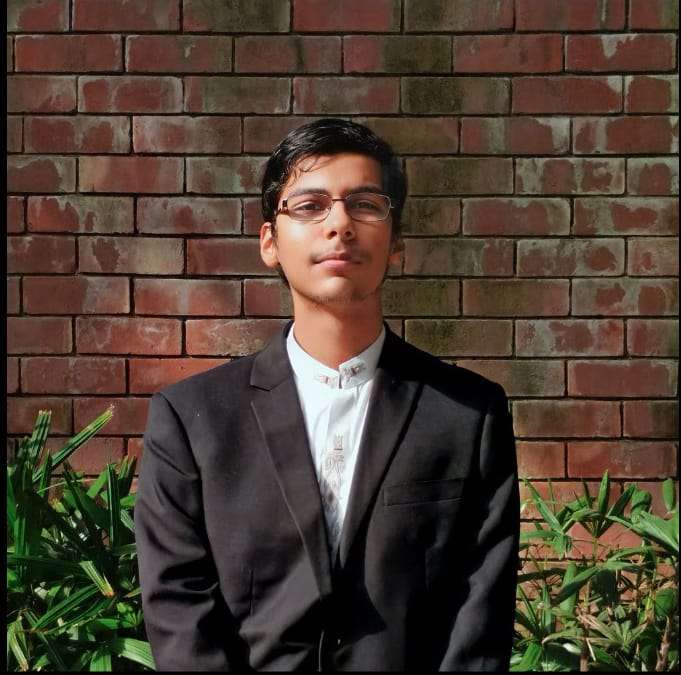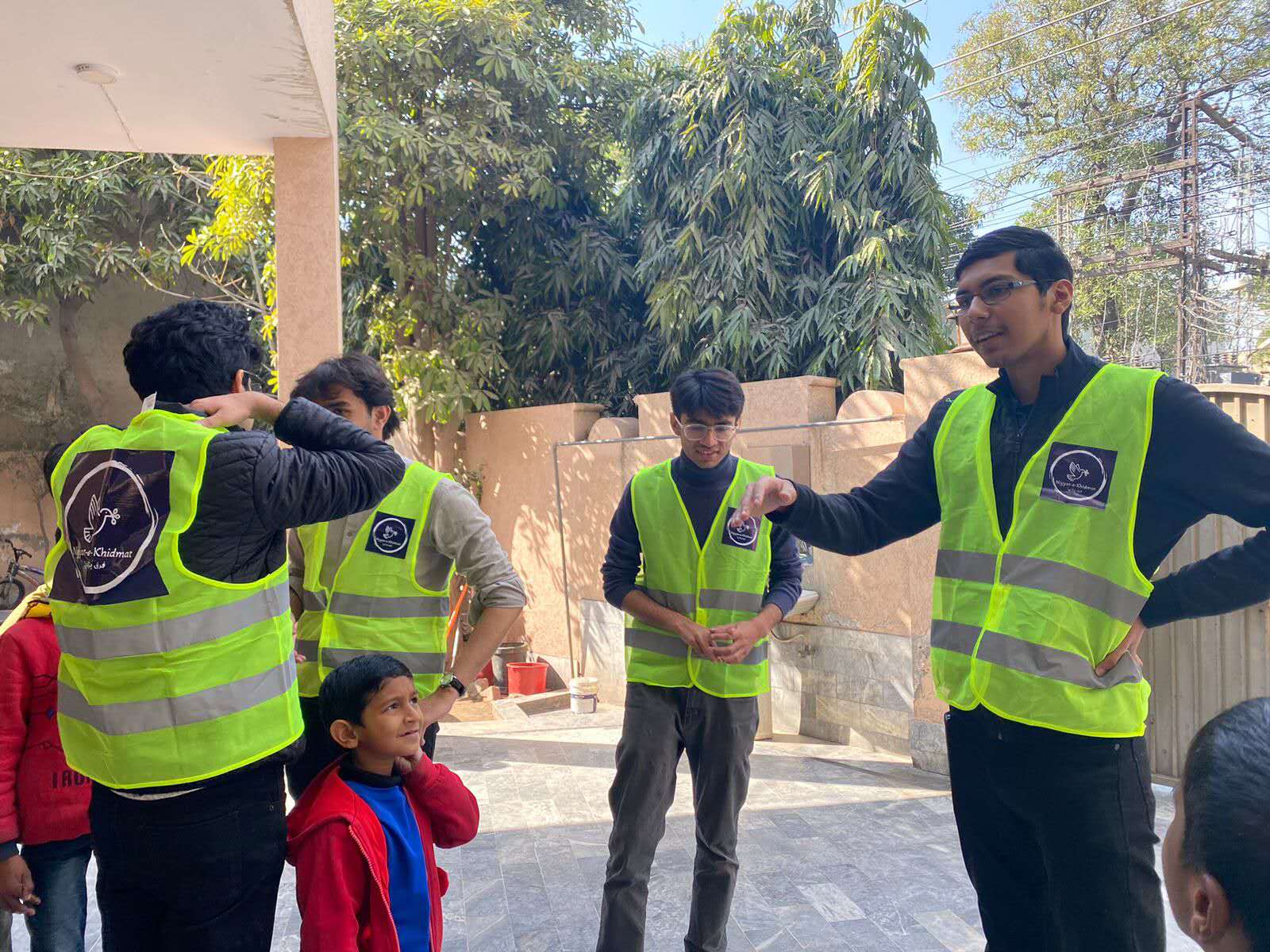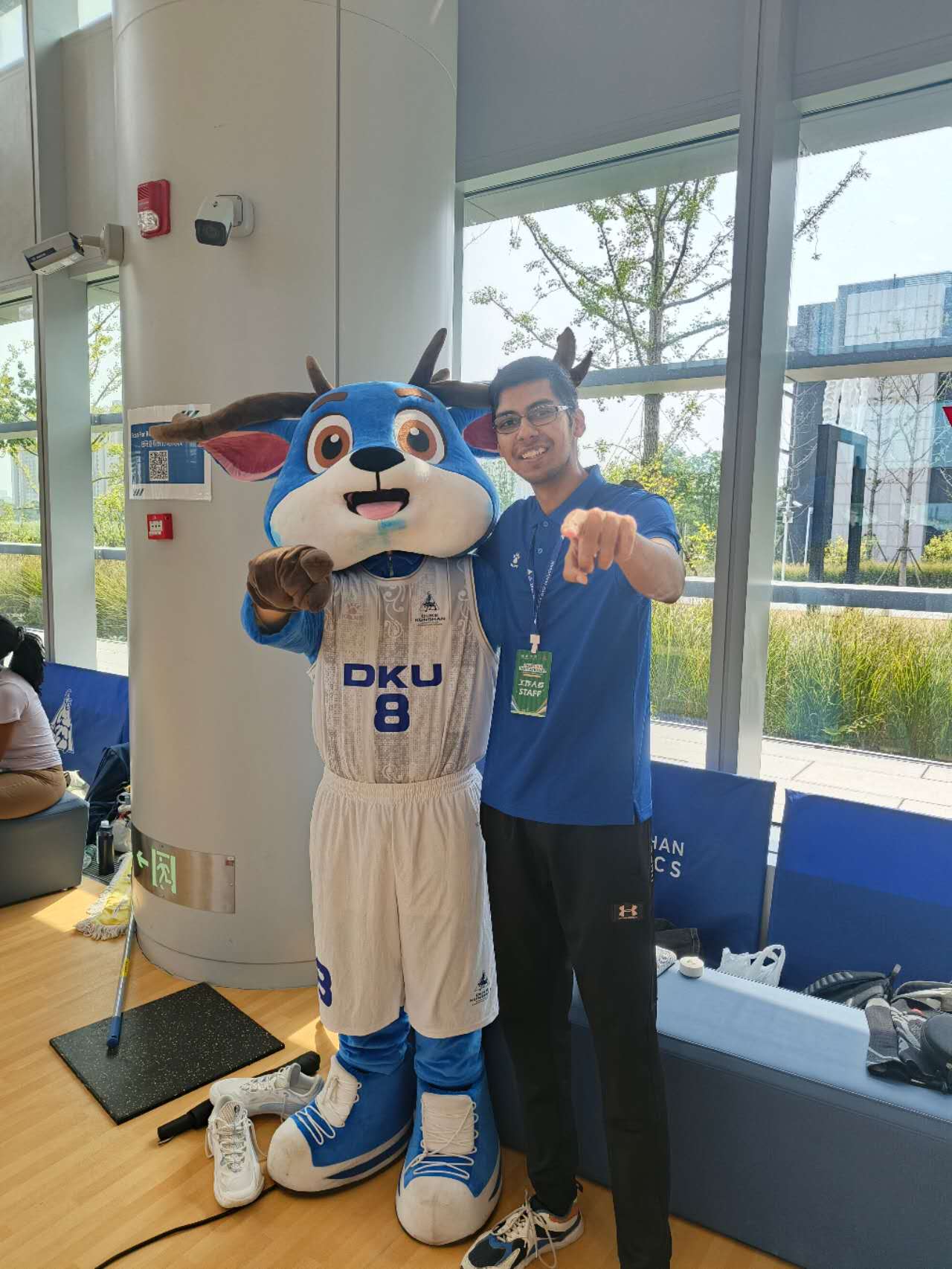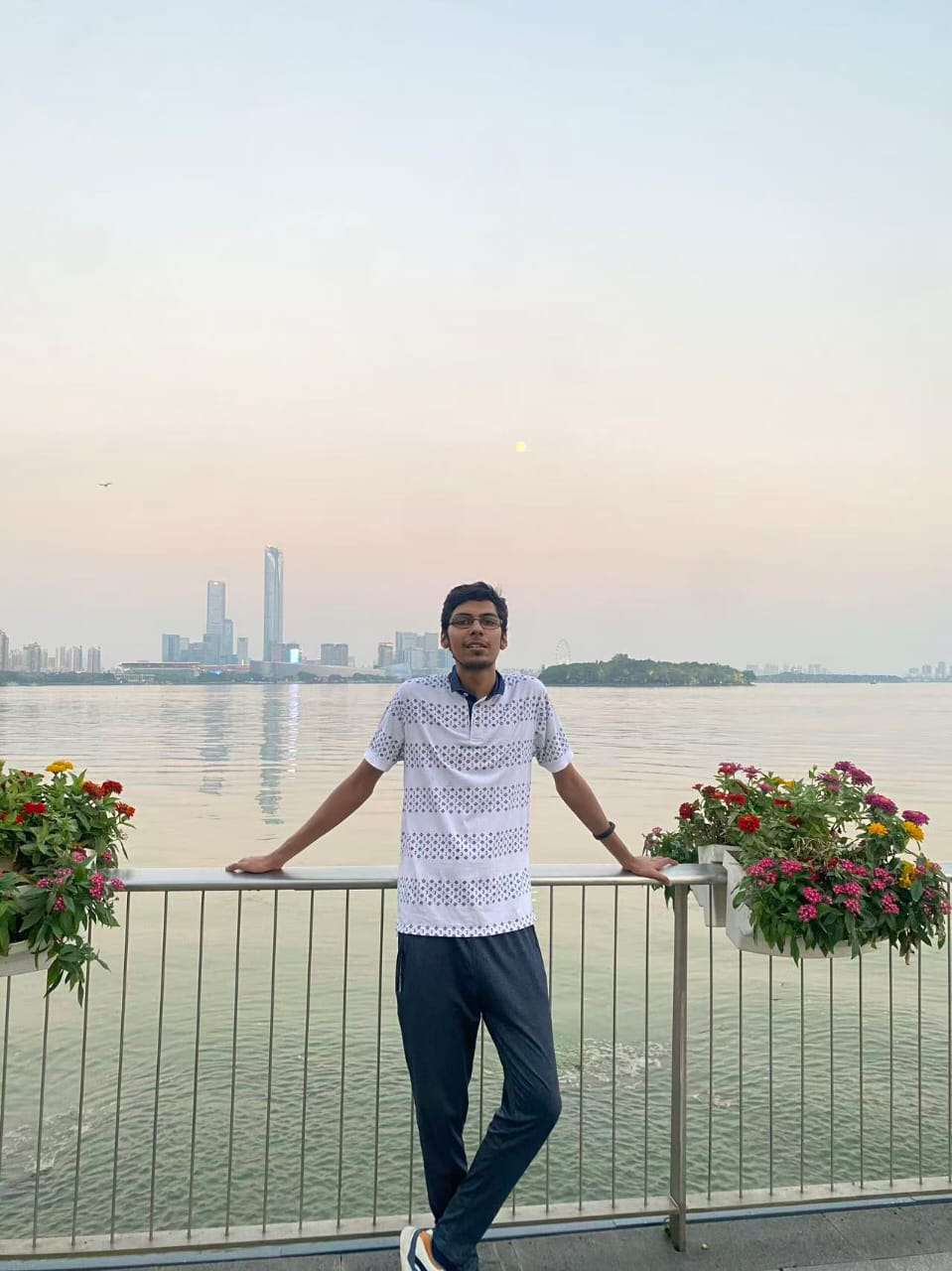This story is part of our Class of 2029 series, featuring first-year students who bring diverse passions and perspectives to Duke Kunshan University.
A mission born from sacrifice
The streets of Lahore hum with life: vendors calling out their goods, cars honking in traffic, and children running between narrow alleys. But for Muhammad Anas Tahir, this city is more than just a bustling place – it’s where his passion for education and community service began.

Growing up, Anas watched his parents make a difficult choice: moving from a rural area to Lahore, Pakistan’s second-largest city, so that he could attend a better school.
“They sacrificed a lot for my education,” he said. “I understand what a gift that was and what a responsibility it carries.”
Striving to provide for those who didn’t have the same opportunities, Anas co-founded Niyyat-e-Khidmat – a youth-led NGO whose name translates as “intention to serve.” What began as a small group of friends running food and clothing drives has grown into a vibrant student movement addressing multiple UN Sustainable Development Goals. From planting trees in response to climate change to organizing orphanage visits, Anas and his team have mobilized dozens of volunteers and impacted hundreds of lives.
“We present our goals in schools and explain the value of what we’re doing,” he said. “What matters is the enthusiasm of those involved, not their money.”

Even now, thousands of kilometers away at Duke Kunshan University (DKU), Anas still advises his NGO, coordinates projects and builds connections with donors in Pakistan. The work is not without its bureaucratic challenges, but those obstacles have only sharpened his vision for what the organization can become.
“One day,” he said, “we’ll expand beyond Pakistan. Because these problems – hunger, education, climate change – are global.”
From classrooms to coffee labs
The same belief in the power of education has also guided Anas’s other passion: teaching. For years, he volunteered in public schools and orphanages, introducing children to civic education and basic computer skills. He taught traffic rules, guided students in the labs to show how software works, and raised awareness about pollution – one of Pakistan’s biggest environmental challenges.
“Kids would come and hug me after class,” he said. “My biggest regret is that I didn’t take their phone numbers and can’t stay in touch.”

But Anas’s impact stretches beyond classrooms and community work. Before coming to DKU, he joined a research project at one of Pakistan’s top universities, LUMS, studying the physical and chemical properties of coffee. Under the guidance of a professor with a postdoctoral background from MIT, he experimented with different types of water, bean sizes, and brewing methods to understand what produces the perfect flavor. Yet, the choice of the topic for his research was far from predictable.
“People are always surprised,” Anas said, “but I’ve never even tasted tea or coffee in my life.”
And yet, standing in the lab surrounded by spectrometers and rows of steaming cups, he never felt out of place. To Anas, the research wasn’t about caffeine or taste – it was about curiosity and discovery.
“Science never stops,” he said. “What excites me is knowing that even something as ordinary as a cup of coffee can hold a world of possibilities if you look close enough.”
A new beginning

At DKU, Anas brings the same purpose to his studies. Though he hasn’t declared a major yet, he is leaning toward computer science with a focus on artificial intelligence – tools he hopes to integrate into Pakistan’s education system one day.
“I want to design models that can make learning accessible, even in the most remote areas,” he said.
Anas’s path to DKU, however, wasn’t straightforward. The first time he applied, the result was a heartbreak: a spot on the waitlist that later turned into a rejection. But he refused to let that be the end of his story. Instead, Anas took a gap year, poured himself into community service and research, and rebuilt his application with the quiet determination of someone who knew where he belonged.
Months later, he refreshed his email and froze. Across his screen, in bold letters, were the words he could only envision: “Congratulations! Welcome to Duke Kunshan University.” For a long moment, Anas just stared, unable to move because he knew: from that moment, his life was not going to be the same.
“Finally getting into my dream school was a sweet redemption after the first setback,” he said.
Now, immersed in a campus community, Anas is seizing every opportunity – from building lifelong friendships to exploring the research projects DKU offers. He dreams of traveling across China, learning Mandarin, and even teaching English to local children.
“This place is a global village,” he said. “And every day here reminds me that education isn’t just about books but about people.”
Looking ahead, he envisions a future where his passions for technology, education, and service unite. Whether it’s about developing his NGO, launching AI-driven educational platforms, or shaping policies in his home country, Anas’s goal remains the same: to give back. In this mission, he is guided by the words of Muhammad Ali Jinnah, Pakistan’s founder: “Without education, it is complete darkness; with education, it is light.”

By Anastasia Titarova, Class of 2027.

